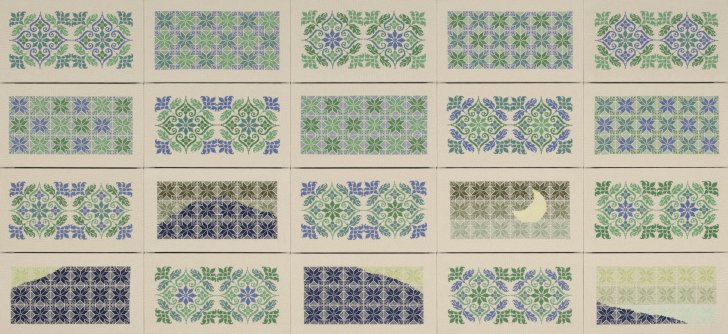Munawara Sultana:
My name is Munawara Sultana, and I'm from Pakistan. I came three years ago, and I found Stitch, and I'm staying because of Stitch in Buffalo. It's too cold for me, but I'm still staying here for the Stitch.
Three years ago, I came here to get an asylum here, and I was living in Vive La Casa, the shelter for refugees and immigrants. And there I met a volunteer who every year would come in Spring and plant flowers at Vive’s gardens. So I met her, and we started talking, and she asked me, “What do you do in Pakistan?” And I was doing my own fabric business. I was reviving the art of hand block printing with natural dyes. And I have all those artisans, women and men working for me. So she said, “Why don't I take you to a place where you will find work which you do at home?” So she took me to Stitch, and the moment I walked in, I said, “I'm not going anywhere else.” This is heaven. This is home. So I stayed.
I used to work with women who do embroidery and do artwork. I traveled all over my country, too. I was doing hand, hand block printing with all the natural dyes on cottons and silks and chiffons and selling it all around the world. I have the export business. And then there was another part, when we took that fabric and we embellished it, so I would go to different parts of Pakistan and make women do the embroidery for me. There was a designer, like what Jordan Nassar did with women, He gave me the thought, and then I would go and give it to women to do it for him.
So when we go to the northern areas, they have this particular stitch that they do on woolen fabrics and cotton.
The interesting part is the moon, the mountains and the way it is designed. It's new to me, but the patterns and all the hand embroidery is is what people in my country do, especially women.
In our culture when they are working, doing the house chores, and then they sit around the fire, or they sit with each other in the evenings. And then they do embroidery together. It's a place for gossip, chatting, knowing each other. The whole community will come. The woman after doing work, because at that time, men are not around, so this is their time. So they would come together in one house or one space, and they sit and they do embroidery. So it's the part of the community and stitching, doing stitching and talking to each other, knowing how they are feeling or who's doing what, and the gossip and the tea. Tea is the most integral part. So this is, this is how they work. After doing everything, they sit down, they—it's the “me time” of the community women.
When I connect people, it surprises me that all the women are same in the world, like women in Pakistan, very remote area, who have never been out of their homes or have never been in connection with other, other part of the world, would act exact the same an American woman would act. That's, that's the connection. Like, how can that that be? It's so human. It's so—it's so common.
